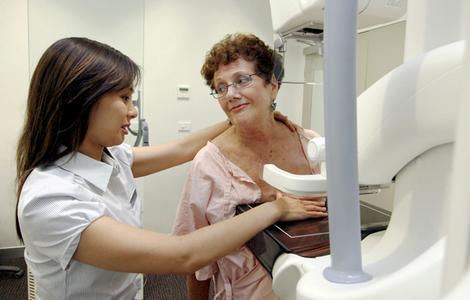By Vera Viner
The healthcare industry has been devoted in recent years to controlling rising medical costs, which is why the federal government has passed new legislation meant to make care services more affordable and cost-effective for consumers, insurers, employers and providers.

For example, the HITECH Act brought forth meaningful use provisions aimed at increasing the use of health IT systems – like electronic health records and e-prescribing software – which are expected to decrease medical errors, reduce hospitalizations and other costly procedures.
Many within the oncology sector have also been devoted to preventing disease instead of spending countless funds on treating every step of cancer, including radiology, chemotherapy, surgery and physical therapy procedures.

Researchers from the Yale School of Medicine found that, despite high costs spent annually on breast cancer screenings, there is little evidence of it benefiting older women. The Centers for Medicare and Medicaid Services (CMS) spends more than $1 billion per year on mammography and other cancer screening processes.
The research was published in the journal JAMA Internal Medicine and indicates that there is no link between increased spending on breast cancer screenings and the detection of advanced stages of cancer. Nearly 140,000 women were followed in this study, including a follow-up regarding diagnosis and costs.

“There was no evidence that higher expenditures were benefiting women living in the high-cost regions,” lead study author Cary Gross, director of the Cancer Outcomes, Public Policy, and Effectiveness Research (COPPER) Center at Yale, said in a press release. “Specifically, there was no relation between screening expenditures and the detection of advanced cancers.”
Various reports have also found that while screening may benefit some, there is a potential for “over diagnosis,” according to FierceHealthcare.
Also, other wasteful spending when it comes to treating breast cancer was observed when Medicare contractors overpaid providers that assigned the drug Herceptin.
“No woman wants to undergo testing if it is likely to cause more harm than good, and no health system – particularly ours – can afford to spend hundreds of millions of dollars on screening programs without evidence to support them,” Gross said in a statement.

Any oncologists that wish to become more cost-effective should support the work taking place at Dr. Vincent Tuohy’s lab at the Cleveland Clinic as well as the work on the human mammary tumor virus conducted by Dr. Beatriz Pogo. With the potential for a vaccine aimed at preventing breast cancer, women’s lives will be spared the unnecessary treatments while hospitals and insurers will become more financially stable.
No comments:
Post a Comment